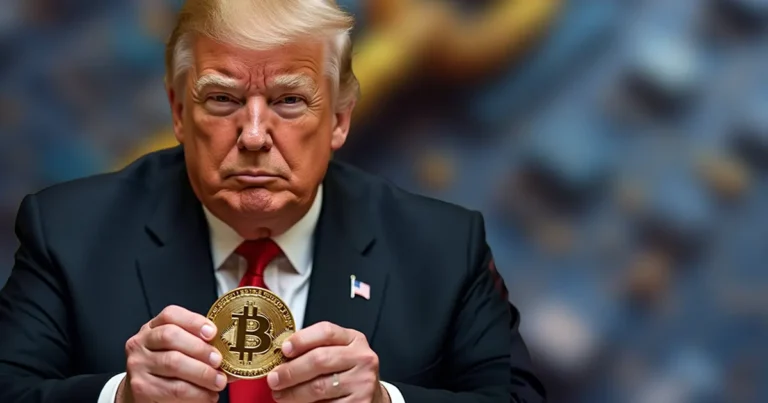22-3-2025 – The cryptocurrency landscape stands at a potential inflection point as reports emerge of US President Donald Trump amassing significant Bitcoin reserves—a remarkable volte-face from his previous public scepticism toward digital assets. During his administration, Trump openly expressed misgivings about cryptocurrencies, characterising Bitcoin as a potential threat to dollar hegemony. This apparent reversal raises profound questions about the future trajectory of digital currencies within global financial systems.
Market analysts suggest Trump’s entry into the cryptocurrency sphere could herald unprecedented institutional adoption. His considerable political and commercial influence potentially transforms Bitcoin’s perception among previously hesitant investors, elevating it from an alternative asset class to an essential component of contemporary investment portfolios. The significance extends beyond immediate price implications, potentially reshaping regulatory frameworks as cryptocurrencies increasingly intersect with mainstream political discourse.
“When figures of Trump’s stature embrace cryptocurrency, the market validation transcends ordinary investment signals,” notes industry observation. This development could catalyse a dramatic acceleration in Bitcoin’s transition from speculative instrument to legitimate store of value, particularly given the asset’s inherently limited supply architecture.
The ramifications for market dynamics appear multifaceted. Trump’s involvement might stimulate substantial capital inflows from institutional investors seeking exposure to an asset class newly legitimised by the president’s participation. This heightened demand, combined with Bitcoin’s capped supply, creates conditions potentially conducive to significant price appreciation—the fundamental scarcity principle underpinning Bitcoin’s economic model.
Nevertheless, substantive concerns temper unbridled optimism. Trump’s documented predilection for unpredictable manoeuvres introduces considerable market uncertainty. Critics question whether his cryptocurrency interests reflect genuine economic conviction or merely serve as political positioning—a distinction with profound implications for market stability should he liquidate holdings precipitously.
Regulatory ambiguity presents additional complications. While Trump’s investment might normalise cryptocurrency ownership, it simultaneously highlights tensions between decentralised assets and traditional financial oversight. The resultant regulatory response could either facilitate market maturation or impose constraints that hamper development, regardless of high-profile participation.
Market volatility remains perhaps the most immediate consideration. Bitcoin’s price history demonstrates pronounced fluctuation patterns, with significant market movements by prominent participants capable of triggering substantial price dislocations. Trump’s entry introduces a new variable into this already complex equation, potentially amplifying short-term instability despite long-term positive implications.
The broader cryptocurrency ecosystem stands to experience transformative effects should Trump’s Bitcoin accumulation represent the vanguard of a larger movement. Increasing participation by influential figures and institutions suggests cryptocurrency’s progressive integration into mainstream financial infrastructure—a development with profound implications for global economic systems.
Should Trump’s cryptocurrency venture prove successful, it may establish a precedent for political and investment leaders worldwide, accelerating Bitcoin’s mainstream adoption. Conversely, negative outcomes could temporarily undermine market confidence, though Bitcoin’s demonstrated resilience throughout previous market cycles suggests long-term trajectories remain fundamentally unaltered.


